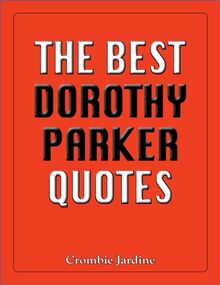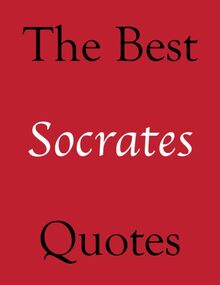-
 Univers
Univers
-
 Ebooks
Ebooks
-
 Livres audio
Livres audio
-
 Presse
Presse
-
 Podcasts
Podcasts
-
 BD
BD
-
 Documents
Documents
-
- Cours
- Révisions
- Ressources pédagogiques
- Sciences de l’éducation
- Manuels scolaires
- Langues
- Travaux de classe
- Annales de BEP
- Etudes supérieures
- Maternelle et primaire
- Fiches de lecture
- Orientation scolaire
- Méthodologie
- Corrigés de devoir
- Annales d’examens et concours
- Annales du bac
- Annales du brevet
- Rapports de stage
La lecture à portée de main
Vous pourrez modifier la taille du texte de cet ouvrage
Découvre YouScribe en t'inscrivant gratuitement
Je m'inscrisDécouvre YouScribe en t'inscrivant gratuitement
Je m'inscrisEn savoir plus
Vous pourrez modifier la taille du texte de cet ouvrage
En savoir plus

Description
Sujets
Informations
| Publié par | Crombie Jardine Publishing Limited |
| Date de parution | 17 août 2016 |
| Nombre de lectures | 3 |
| EAN13 | 9781326765637 |
| Langue | English |
Informations légales : prix de location à la page 0,0228€. Cette information est donnée uniquement à titre indicatif conformément à la législation en vigueur.
Extrait
NOTE
The beauty of e-readers means that a variety of text fonts and type sizes can be selected, according to the reader’s preference. This text has been prepared in Palatino (medium, regular) and so the layout probably works best in this font.
MAYA ANGELOU 1928 – 2014
Born Marguerite Annie Johnson in St. Louis, Missouri, Maya (a nickname given to her by her brother, Bailey Jr.) Angelou was an exceptional African-American woman: prolific writer, poet, actor, singer, professor, director, civil rights activist…
Maya had a traumatic childhood which she wrote about in her first autobiography, I Know Why The Caged Bird Sings (published in 1969). As a child, she was raped by her mother’s boyfriend. In revenge, Angelou’s uncles killed the man responsible and, traumatised by the events, she became practically mute from the age of eight until she was thirteen. During this time (when she loved to read, and only spoke to her brother) her love of writing began; she kept a journal and would write down her thoughts, as well as try her hand at poetry and essays.
Maya dropped out of high school and at 16 became San Francisco’s first female African-American cable car conductor. When she went for the job, the staff did not want to give her an application form, but she persevered (essentially staging a sit-in for two weeks) until she was finally interviewed and secured the job, which she loved.
Maya went back to high school to complete her education and she took lessons in drama and dance. She got pregnant and, a few weeks after she graduated, at 17 had a son, Clyde (who later became officially called Guy Johnson).
In 1951, Maya married a Greek-American ex-sailor, Enistasious ‘Tosh’ Angelos, but the marriage did not last and in 1954 they went their separate ways.
During the 1950s, much of Angelou’s life and work focused on music and dance. ‘Music was my refuge,’ she said later. She became a nightclub singer and a Calypso dancer in a San Francisco bar called The Purple Onion, and then toured Europe with a production of Porgy and Bess . In 1957, she released an album called Miss Calypso which had mild success.
In 1958, Maya moved to New York. Here she joined the Harlem Writers Guild, an organization set up to help African-American writers develop their talent. It was at the HWG that she met the novelist James Baldwin who was to become a good friend.
In 1961, Angelou, her son Guy, and her partner Vusumzi Make (a South African civil rights activist) were living in Cairo, Egypt, Maya working as associate editor of the Arab Observer . The relationship did not last and the couple separated in 1962. Maya moved to Ghana, where she wrote for The Ghanaian Times , was a features editor for The African Review and also worked at the University of Ghana.
In 1965, Angelou returned to the United States. She was friends with Malcolm X and wanted to help him build the Organization of Afro-American Unity. After Malcolm X’s assassination in February 1965, the organization dissolved. Having worked before as a fundraiser for Martin Luther King, Jr.’s African-American civil rights organization, the SCLC (Southern Christian Leadership Conference), Angelou become more involved again. At the beginning of 1968, King asked Maya to help with his Poor People’s Campaign – this was a call to Congress with demands for economic and human rights for the poor, and a peaceful mass gathering was planned for Washington, DC, in the spring. After King’s assassination on 4th April 1968 – Angelou’s 40th birthday – she was devastated and stopped celebrating her birthday for several years.
Angelou wrote and produced a 10-part TV documentary series about the influence of African-American culture on American society: Blacks, Blues, Black! which aired in 1968. Episodes covered a variety of topics from positive and negative behaviour, through history and music to education, business and violence.
In 1969, Angelou completed I Know Why The Caged Bird Sings . This was to be the first of seven autobiographies and perhaps the most widely read and memorable, covering as it did her traumatic childhood. She later said that although she wrote about her personal experiences from a Black American female’s perspective, she was always talking about what it is like to be a human being: ‘This is how we are, what makes us laugh, and this is how we fall and how we somehow, amazingly, stand up again.’
In the 1970s, Angelou worked on a variety of projects: TV scripts, plays, film scores, autobiographies... She wrote the screenplay and composed the music for the film Georgia, Georgia (released in 1972) and also had a supporting role in the acclaimed TV series Roots by Alex Haley.
In 1973, she got married again, to Paul du Feu, and the family moved to California. Unfortunately, the marriage did not last and the couple divorced in 1981.
From 1981 (for some thirty years), Maya taught at Wake Forest University in Winston-Salem, North Carolina, where she became the Reynolds Professor of American Studies. She taught a variety of subjects from philosophy and ethics to theatre and writing. She was an important member of the Winston-Salem community: she was the first chairperson of its National Black Theatre Festival; the Maya Angelou Women’s Health and Wellness Center at Forsyth Medical Center opened there in 2012; and she also has a street named after her.
In 1993, Angelou recited her poem On The Pulse Of The Morning at President Bill Clinton’s inauguration. The recording of this won her a Grammy Award – for best spoken word album.
In the late 1990s and early 2000s, Angelou directed (her first feature film was Down in the Delta , 1998), wrote essays, published two cookbooks, and became a radio talk show host.
Angelou backed Senator Hillary Clinton in the 2008 presidential primaries, before going on to endorse Barack Obama.
She was the recipient of many honorary degrees and awards, including the Fulbright Program 40th Anniversary Distinguished Lecturer Award (1986), the Martin Luther King, Jr. Legacy Association National Award (1996), the Mother Teresa Award (2006), the Lincoln Medal (2008), and the Presidential Medal of Freedom (2000) – the highest civilian honour in America.
In 2010, she donated her personal papers and materials (inclu
-
 Univers
Univers
-
 Ebooks
Ebooks
-
 Livres audio
Livres audio
-
 Presse
Presse
-
 Podcasts
Podcasts
-
 BD
BD
-
 Documents
Documents
-
Jeunesse
-
Littérature
-
Ressources professionnelles
-
Santé et bien-être
-
Savoirs
-
Education
-
Loisirs et hobbies
-
Art, musique et cinéma
-
Actualité et débat de société
-
Jeunesse
-
Littérature
-
Ressources professionnelles
-
Santé et bien-être
-
Savoirs
-
Education
-
Loisirs et hobbies
-
Art, musique et cinéma
-
Actualité et débat de société
-
Actualités
-
Lifestyle
-
Presse jeunesse
-
Presse professionnelle
-
Pratique
-
Presse sportive
-
Presse internationale
-
Culture & Médias
-
Action et Aventures
-
Science-fiction et Fantasy
-
Société
-
Jeunesse
-
Littérature
-
Ressources professionnelles
-
Santé et bien-être
-
Savoirs
-
Education
-
Loisirs et hobbies
-
Art, musique et cinéma
-
Actualité et débat de société
- Cours
- Révisions
- Ressources pédagogiques
- Sciences de l’éducation
- Manuels scolaires
- Langues
- Travaux de classe
- Annales de BEP
- Etudes supérieures
- Maternelle et primaire
- Fiches de lecture
- Orientation scolaire
- Méthodologie
- Corrigés de devoir
- Annales d’examens et concours
- Annales du bac
- Annales du brevet
- Rapports de stage



















